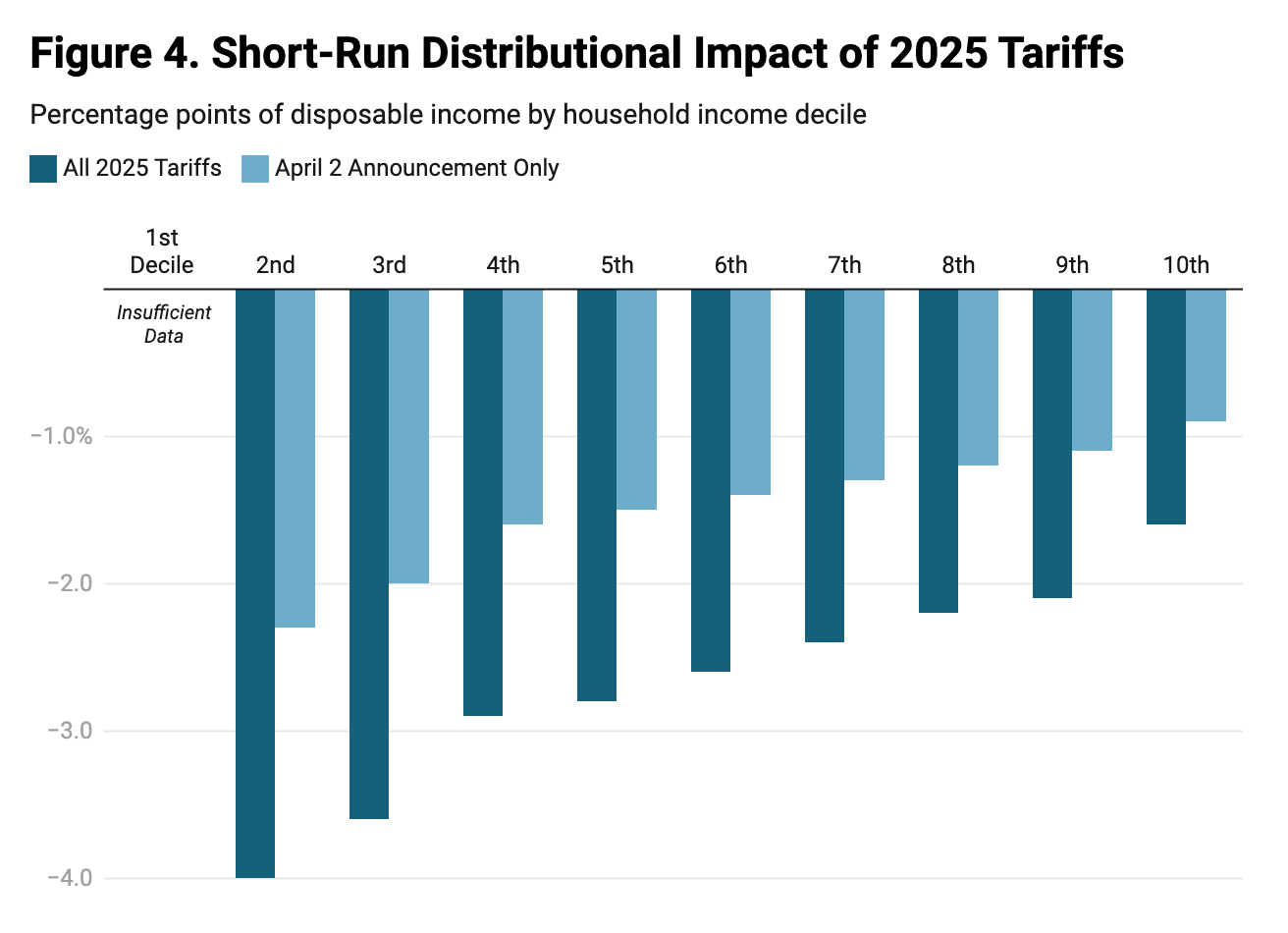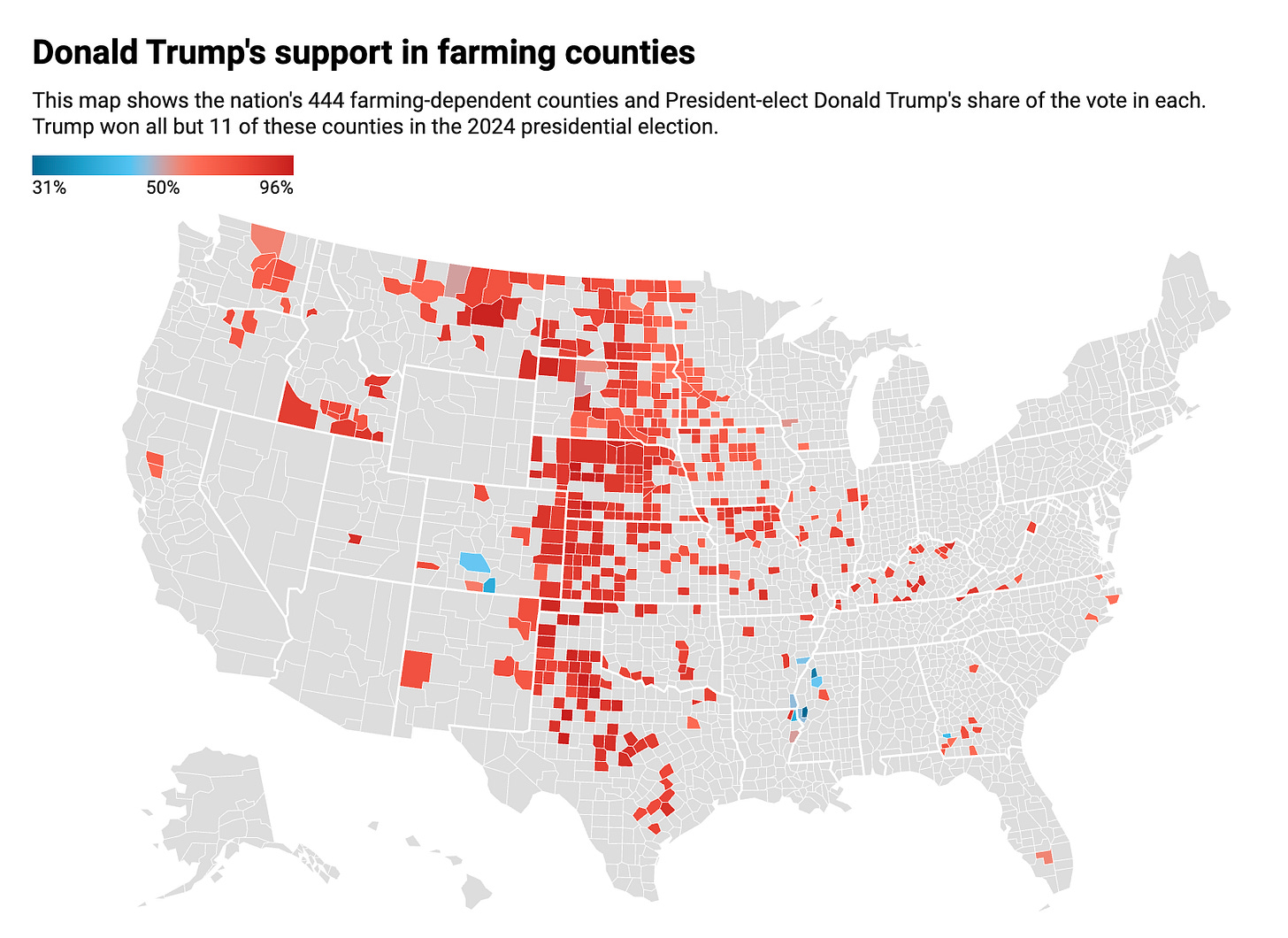I voted to inflict pain on others, not myself
Authoritarian leaders – unshackled by checks and balances – often fail to govern quite in the way their supporters intended
When people voted for Donald Trump, they did not necessarily know what policies they wanted enacted. But one desire was beyond doubt – they voted to inflict pain on others. Rural folk voted to inflict pain on city dwellers. Conservatives voted to inflict pain on liberals. Legal citizens voted to inflict pain on undocumented immigrants. Pain would be coming to an enemy near you.
Yet pain, like water, finds its way through the cracks. And authoritarian leaders – unshackled by such bourgeois affectations as checks and balances – often fail to govern quite in the way their supporters intended. The needs of the regime and the whims of the leader must come before all else.
Trump’s tariffs, which send the average effective tariff rate in the United States to its highest level since 1909 and will cost the typical household around $3,8001, do not discriminate. I do not mean that they are not highly regressive – they are (see chart below). Those on the lowest incomes, who spend a greater proportion of their resources on food, fuel and shelter, will suffer the most. Just that many of the victims did not mean for it to happen to them. Pain, remember, is for other people.
David Frum made a similar point in The Atlantic recently. He suggested that American farmers, who voted overwhelmingly for Trump2 and are now pleading for tariff exemptions, were not entitled to special treatment. Frum concludes:
“What you serve to others you should eat yourself. And if rural America cannot choke down its portion, why must other Americans stomach theirs?”
At the risk of parochialism, I think about Brexit. It is true, many Britons who voted to leave the European Union were financially comfortable, having paid off their mortgage and protected by the state pension triple lock. They had little to lose from a spot of trade friction. But many others voted for Brexit because they felt to be the ‘losers’ of globalisation. In some cases, they were right. But in blowing up Britain’s economic model, they made themselves poorer too.
Trump’s tariffs will of course have global implications. In no particular order, the US has repudiated the essential architecture of the post-war trading system, namely the most-favoured nation principle, whereby countries cannot discriminate between their trading partners. Trump may push allies in Southeast Asia3 closer to China’s orbit, which would represent an enormous and potentially irreversible geopolitical own goal. And it will hurt many of the world’s poorest people.
Not everyone will live to regret their 2024 vote, of course. The wealthiest Americans can expect a trillion-dollar tax cut. Meanwhile, Trump will reliably nominate and the Senate dutifully confirm conservative judges. But the pain will come as a shock to many millions of Americans who only meant to inflict it on others. Some will not notice, blinded by partisanship. For those that do, their vengeance will not be pretty.
Data from The Budget Lab, a non-partisan research centre
In the US’s 444 most farm-dependent counties, Trump secured an average of 77.7 percent of the vote
This interactive graph from Reuters shows just how badly the region is to be hit






The farmers will be bought off (again) with subsidies. Only fair, in their view, for being the Last Real Americans. All hail our Glorious Leader!
I notice FauxNews has already rurned on him. H dear!